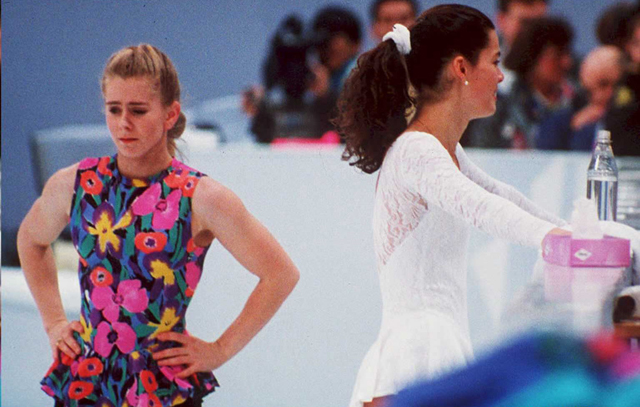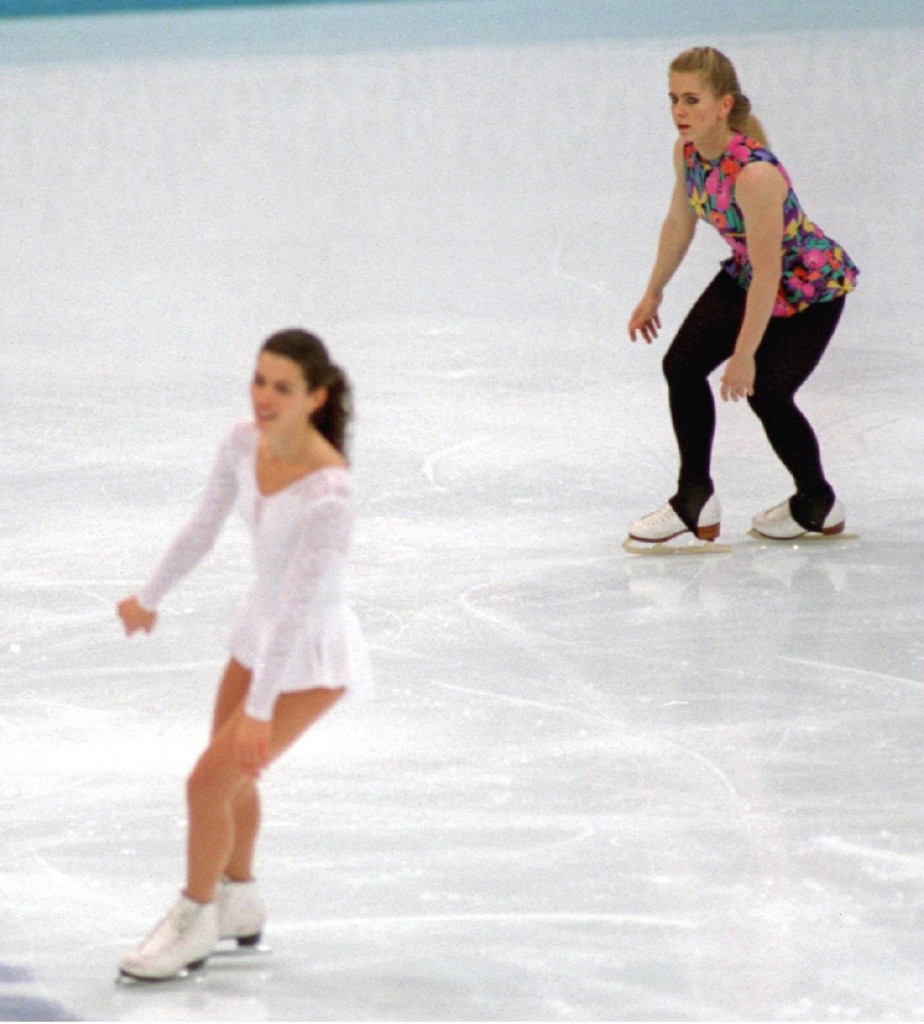
"Figure skater Nancy Kerrigan attacked."
I still remember first hearing the news blaring from the television set tuned to Hard Copy. You remember Hard Copy, don't you? It was the tabloid television show that sensationalized the news and news-ified the sensational. If a celebrity was accused of something or a scandal was brewing, you could bet that Hard Copy and its team of scare tactic reporters would be there. The Kerrigan saga had all the makings of ratings gold.
January 6, 1994. After a practice session for the upcoming National Championships in a rink in Detroit, Kerrigan was struck on the right thigh inches above her knee by a man with a baton who then fled the scene. The incident was even caught on tape. It was this footage of Kerrigan, clutching her leg and crying "Why, why?" through tears, that went whatever the '90s version of viral was. Hard Copy had the footage instantly; the attack was the lead story.
Over the next few weeks, the entire ordeal played out publicly in the yellow tabloid television spotlight, with Hard Copy leading the way among American broadcasts. We would soon discover that Tonya Harding, another Olympic skating hopeful, was involved in the attack on Kerrigan through her ex-husband, Jeff Gillooly, and her bodyguard, Shawn Eckhard who had hired Shane Stant to bash Kerrigan's knee. Luckily, Kerrigan's leg was only bruised, not broken, but the injury from the attack forced her to withdraw from the National Championships. Ironically, Harding won that event and both skaters were chosen for the 1994 Olympic team.
The '90s were a tabloid decade like no other, as though all the accumulated scandal from the first 90 years of the twentieth century had been brewing, only to explode like a faulty septic tank before the dawn of the new millennium. In 1991, the Clarence Thomas/Anita Hill sexual harassment allegations hit the media and Thomas's confirmation hearings for the Supreme Court were marred by details of his alleged crude and unwanted overtures to Hill. In 1992, 17-year-old "Long Island Lolita" Amy Fisher shot Mary Jo Buttafuoco, the wife of her lover, 36-year-old mechanic Joey Buttafuoco, in the face on her doorstep. Then there were the divorces. Burt Reynolds and Loni Anderson were going at in court and in the media, the House of Windsor was having problems with both Princess Diana and Prince Charles' marriage and with the marriage of Prince Andrew and his wife Sarah, the Duchess of York. Last but not least, who could forget the cesspool that was the Trump marriage dissolution; all the money in the world couldn't buy the Trumps a happy ending.


